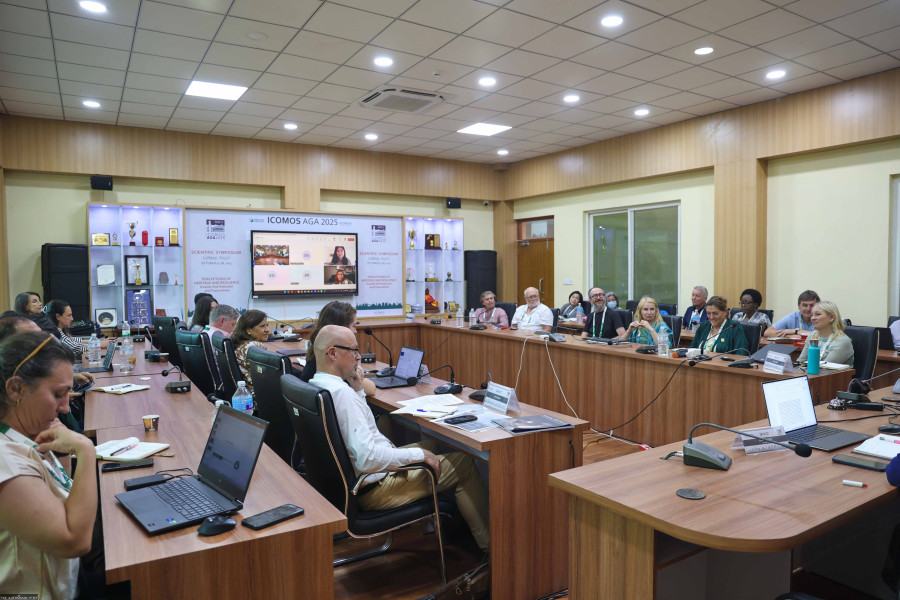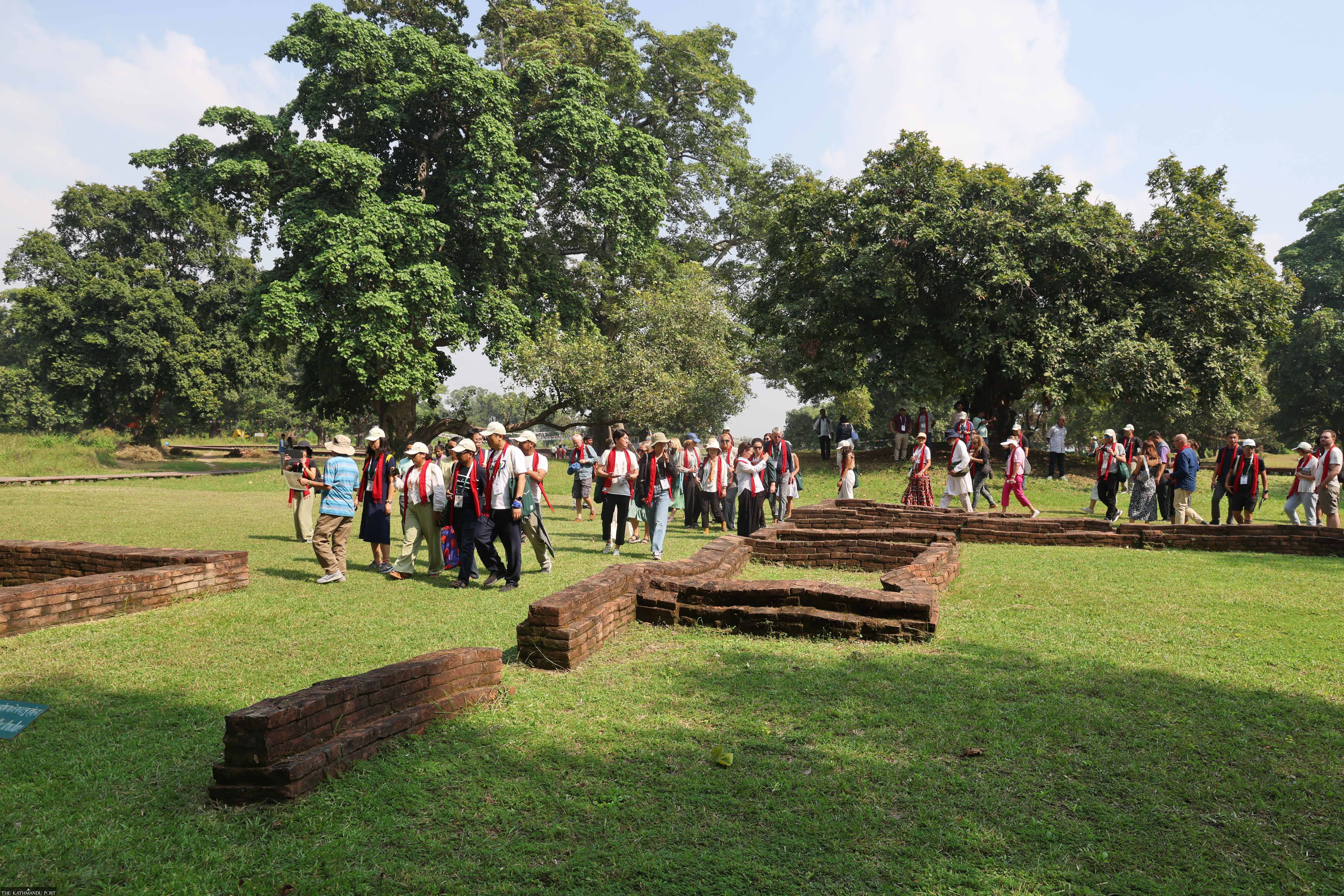National
Global heritage experts call for peace from Buddha’s birthplace
Delegates from 67 countries gathered in Lumbini and discussed cultural landscapes and innovative methods to protect heritages over four days.
Manoj Paudel
Heritage experts and conservation scientists from around the world have pledged to promote peace through the effective use of cultural heritages. The commitment was made at the end of a four-day international conference in Lumbini, the birthplace of Gautam Buddha, on Saturday.
A declaration was adopted at the end of the conference organised by the International Council on Monuments and Sites (ICOMOS) Nepal, with support from ICOMOS International, a global network of heritage professionals committed to the conservation and promotion of cultural heritage. The gathering called for a collective global effort to protect monuments and heritage sites increasingly threatened by war, conflict and natural disasters.
Reading out the ‘Lumbini Declaration for Peace’ on Saturday, ICOMOS Nepal President Gyanin Rai said cultural heritage is not just about preserving monuments—it is about nurturing coexistence, dialogue, and peace.” He added that heritage sites should be recognised as a foundation for the economic sustainability of local communities and a means to foster global harmony.
“Conflicts and natural disasters continue to destroy heritage in many parts of the world. From the land of peace, where the Buddha was born, we appeal to all humanity to safeguard heritage and promote peace,” reads the statement. It emphasised that cultural sites can play a crucial role in post-conflict recovery and peace building.
According to the statement, heritage professionals visited Lumbini’s sacred garden to experience peace and reflected on how such places can inspire efforts to protect and restore damaged cultural landscapes worldwide.
Chilangwa Ahaiwa, ICOMOS’ international vice president for Africa, said the conference had given participants renewed energy to act. “This gathering has deeply inspired me. We leave Lumbini with a strong motivation to work harder for heritage and peace,” said Chilangwa Ahaiwa Zambia.
The conference drew 222 foreign delegates from 67 countries across five continents, along with over a hundred Nepali participants. More than 500 others joined online. Attendees included archaeologists, architects, engineers, heritage scientists and researchers from countries as diverse as Zambia, Sweden, Ecuador and Australia.
ICOMOS’ International President Professor Teresa Patricio of Belgium said the discussions in Lumbini were exceptionally meaningful and would soon yield tangible outcomes. The impact of this conference will be felt globally. It will be a milestone in advancing the culture of heritage conservation, she said.
Over four days, participants engaged in nine thematic panel discussions held in three parallel sessions each day. More than 190 research papers were presented, covering topics from architectural conservation and cultural landscapes to emerging technologies in heritage protection.
ICOMOS Nepal Secretary Annie Joshi said the conference facilitated intensive knowledge sharing among experts from architecture, history, and cultural studies. According to her, the discussions exchanged experiences and discussed scientific and technological methods to preserve both tangible and intangible heritage.
According to ICOMOS Nepal Treasurer Shristina Shrestha, the organisation serves as the principal advisory body to UNESCO’s World Heritage Committee, evaluating nominations for cultural and mixed heritage sites proposed for the World Heritage List. “This makes ICOMOS one of the most important heritage institutions globally,” she said. “Hosting this event in Nepal, in the sacred birthplace of the Buddha, is a matter of pride for us.”
Established in 1965 as an international non-governmental organisation, ICOMOS today operates through a secretariat in Paris, France. It maintains national committees in 117 countries, 31 scientific committees, and has over 12,700 professional members from 137 nations. Its mission is to safeguard monuments, cultural landscapes, and heritage sites worldwide.

Prior to the conference, ICOMOS International also held its 60th General Assembly in Lumbini, marking the organisation’s anniversary by cutting a commemorative cake. The assembly echoed the same call for peace from Lumbini, emphasising the urgency of protecting heritage amid escalating global conflicts.
ICOMOS Nepal president and co-chair of the assembly, Rai, said the next General Assembly would be held in Sarawak, Malaysia, in 2026.
Delegates also toured the Lumbini heritage zone—including Maya Devi Temple, which houses a stone marking the exact birthplace of Siddhartha Gautam, who later became the Buddha; Tilaurakot, the ancient capital of Kapilvastu where Prince Siddhartha spent his youth for 29 years and Nigrodharama, the place where the enlightened Buddha first met his parents after returning to Kapilvastu. Many participants meditated within the Maya Devi complex, describing the visit as a profound reminder of the enduring link between heritage and peace.




 9.89°C Kathmandu
9.89°C Kathmandu














